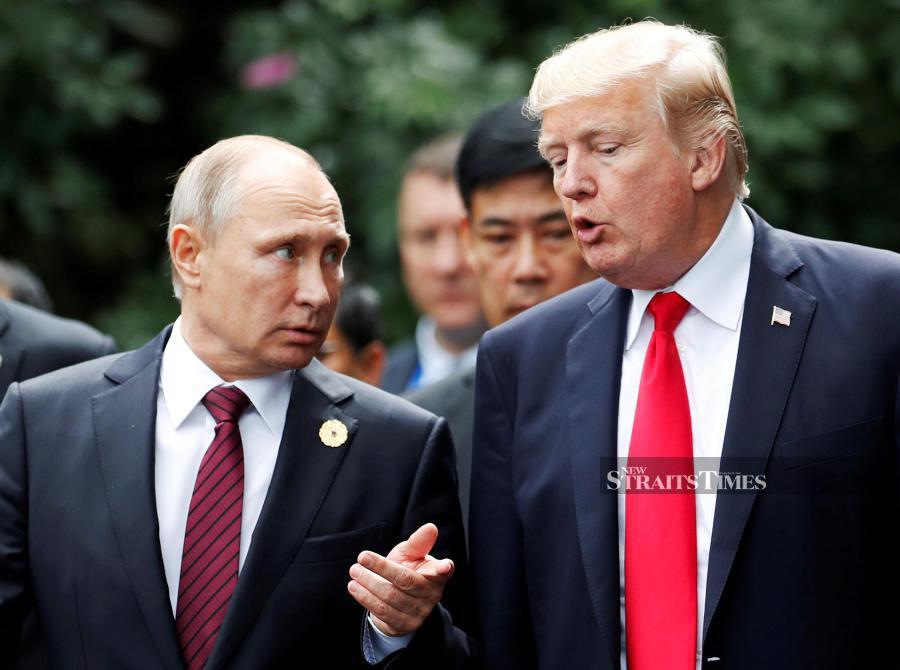IN determining the desirable traits of a “good” leader, oftentimes what you get is a far cry from the idealised figures one would anticipate. Emphasising this dissonance is the growing examples of strongman politics that challenge our understanding and expectations of leaders and decision-making processes both at home and abroad.
And these behaviours and policies continue to make headlines. Donald Trump’s idea of “America first”, Vladimir Putin’s continued firm control over Russia, and the backsliding of European democracies are among many that caused waves of confusion and alarm across the western world.
This, however, is unfortunately not a novel phenomenon. The rise in street crime in the Philippines propelled President Rodrigo Duterte and his anti-drug crusade into power. The ineptitude of the Thai civilian political institutions allowed the military to seize power. Past experiences of Tiananmen and the Soviet collapse act as a constant reminder to China to keep dissent under firm control. Xi Jinping’s anti-corruption platform later coalesced into “Xi Jinping Thought” to control rivals and consolidate personal power.
It is difficult to reconcile ideals of leadership roles intended to represent the people’s wishes with such heavy-handed means. At the same time, we need to be aware that the degree of personal actions affecting the final product depends on individual differences and the political system they operate in.
In a best-case scenario, the leader is highly interested in the affairs of the country; granted the authority to make the necessary decisions; and operates in ambiguous contexts. On the other hand, the worst-case scenario would have a leader operating freely in non-existent bureaucracies, most of these heavily autocratic, monarchical, or dictatorial.
How did this become such a growing problem? Since the end of the Cold War, the world learnt and benefited from values such as democracy, the rule of law, and open markets. As time passed, the checks and balances of this political system were seen as obstacles to tackling persistent issues such as poverty, identity-based conflicts or tensions, and political instability. The rose-tinted lenses of liberal democracies slipped in favour of less-than-liberal alternatives and the spectacle surrounding them. To promise protection against the enemy of the day, or government, has become almost too easy. The technological and communications revolution bridged many gaps in the world, and allowed dominant players to control and share information for the right (or wrong) reasons.
In such a complex world with no clear way of making sense of it all, this grants opportunities for targeted information to be delivered to chosen social groups; in doing so, aiming to create some semblance of familiarity and affinity between leader and population.
Aspirations and questionable achievements aside, one needs to consider the long-term effects of their actions. How much can a strongman leader do to produce qualitative benefits for his country? If so, is it a bad thing to have such an assertive leader?
Generally speaking, one should be continuously aware of the assertiveness of any leader and government. Although curiously, apprehensions over strongman politics have been somewhat averted in a non-Western context. Look no further than the cases of Tun Dr Mahathir Mohamad’s first tenure as prime minister and Lee Kuan Yew of Singapore.
Under the banner of “Asian values”, the positive outcomes of their extensive involvement in the development of their respective countries granted them performance-based legitimacy. While their methods may have been less democratic, how they were achieved becomes less of a concern if there is a favourable end-game.
While this “country-first” narrative succeeds in a domestic context, it works at the expense of the country’s international counterparts. The concerns brought upon by personalised politics are felt by neighbours and allies alike, which can further undermine institutions and multilateral arrangements. Without credible alternatives, there is nothing challenging such strongmen approaches. They are normalising authoritarian practices, undermining institutions, threatening domestic pluralism while destabilising the international order.
Such is the situation with China, which owes its considerable presence in the world to its authoritarian leadership. Its case as an outlier may inadvertently serve as an example to developing countries that are not sold on the idea of democratic transition. Given the increasing hold of “Xi Jinping Thought” and the reach of the Chinese Communist Party, it may be giving additional legitimacy for new strongmen to follow suit.
What better way to challenge the stability of the global order by saturating it with the volatile whims of individuals?
Understandably, it is easy to dismiss such matters that seem to have little effect on the average citizen. How would this matter to us on a day-to-day basis? Realistically speaking, this is not intended to draw comparisons with any domino-themed collapse of the democratic order. Neither does this vindicate the successful exceptions of particular strongmen. The point remains that this growing indifference to these set of behaviours cannot be ignored.
Political systems, especially democratic ones, are expected to be constrained by public opinion, opposition groups, and bureaucracies. They are supposed to be reflective of their diverse stakeholders, not at the mercy of a mercurial leader.
We cannot overlook the symbolic and tangible effects this can pose to the capacity of governments and their contributions to the overall stability of the country, region, and beyond.
Disclaimer: This article first appeared in The New Straits Times on 1 May 2019





